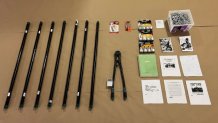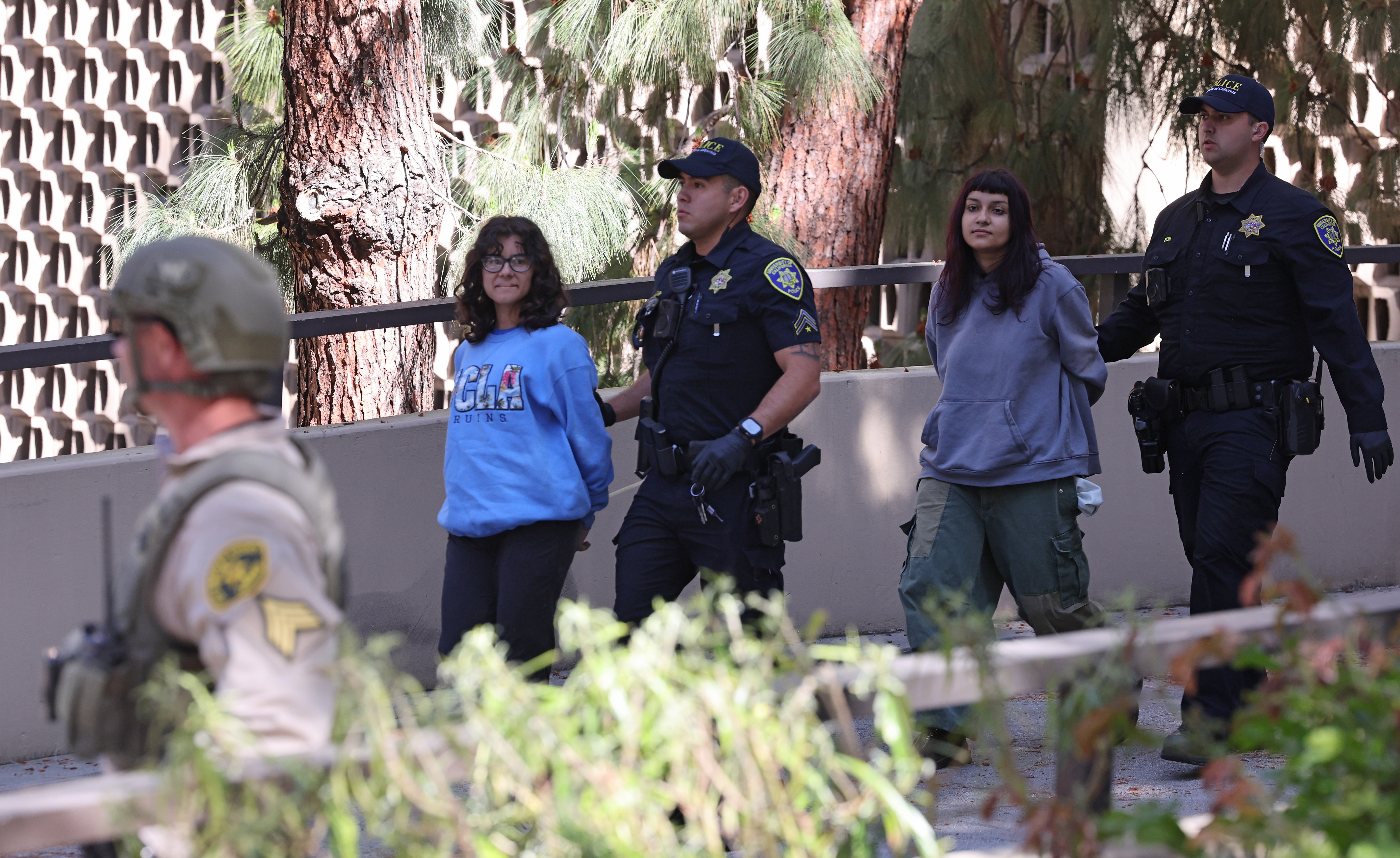Tools that police said could be used to enter and barricade a building, including metal pipes and bolt cutters, were among the items found when about 40 people were arrested during protests Monday at UCLA, the university's police department said.
The individuals were arrested in a parking structure on the Westwood campus during a day of demonstrations over the war in Gaza that forced school officials to move all classes to remote learning. Tensions were already high on the campus, where days earlier a sizeable protest encampment that went up weeks ago was cleared by authorities in a pre-dawn police operation.
During Monday's unrest, officers said they took people at the parking structure into custody to determine whether they were students, staff or faculty members. The campus is closed to anyone not affiliated with the university every day between midnight and 6 a.m.
Get top local stories in Southern California delivered to you every morning. >Sign up for NBC LA's News Headlines newsletter.
"Multiple individuals in the group were in possession of tools and items that could be used to unlawfully enter and barricade a building, including heavy-duty metal pipes, bolt cutters, epoxy adhesive, super glue, padlocks, heavy-duty chains, and documentation encouraging violence and vandalism," UCLA police said in a news release.

The items found included literature titled, "The Do-It-Yourself Occupant Guide, 2024 Edition." The guide's introduction says the updated edition "comes in light of a nationwide resurgence of student occupations in 2024, beginning with Columbia University in New York, in response to an ongoing genocide in Palestine."
Police provided images of the document and tools in a news release. It was not immediately clear how many people in the group were in possession of the tools and documents.
At about the time of the detentions in the parking structure around 6 a.m. Monday, officers responded to UCLA's Moore Hall, where several people gathered inside and outside the building. Moore Hall was closed at the time. Campus police said a UCLA-registered student organization posted a statement on social media encouraging people to occupy the building.
"It became apparent that the individuals at Parking Structure 2 had formed a plan to use bolt cutters, padlocks, epoxy adhesive, super glue, heavy duty chains, and metal poles to break into Moore Hall to occupy and vandalize the location," police said.
At about 8:30 a.m., dozens of people left Moore Hall and walked to Dodd Hall, which was open and being used for midterm exams. They eventually left the building and joined a protest at Bruin Plaza before leaving the area.
Forty-two people were arrested on suspicion of conspiracy to commit a crime. Two were taken into custody for obstructing a peace officer. They were booked and cited at a jail in the San Fernando Valley, then released from custody. Four of the 44 people arrested Monday had been arrested May 2 after failing to leave the Royce Quad tent encampment after a dispersal order, university police said.
Thirty of those arrested were UCLA students and nine had no affiliation with the school, police said. Two said they were members of the media, but did not have press credentials, according to police.
Over the weekend, UCLA Chancellor Gene Block announced a newly created Office of Campus Safety to administer policing and emergency management. On May 23, Block is expected to testify before Congress about UCLA's response to antisemitism on the campus and actions to protect Jewish students.
Violence broke out April 30 at the UCLA protest encampment when fights broke out between pro-Palestinian protesters and counter demonstrators.
The war in Gaza began Oct. 7 when Hamas attacked southern Israel, killing around 1,200 people, mostly civilians, and abducting about 250 others. Israel says militants still hold around 100 hostages and the remains of more than 30 others.
On Monday, the Israeli army ordered tens of thousands of Palestinians in Gaza's southern city of Rafah to start evacuating. The warning is a signal that a ground invasion could be imminent months after the Hamas militant group attack.
The Rafah border crossing with Egypt has been shut down since Israel’s military took control of the Palestinian side early Tuesday. A first ship carrying humanitarian aid for Gaza was on its way Thursday to a floating platform built by the U.S. military. The plan is for cargo to be transferred at the pier to smaller U.S. boats that will deliver it to shore.



